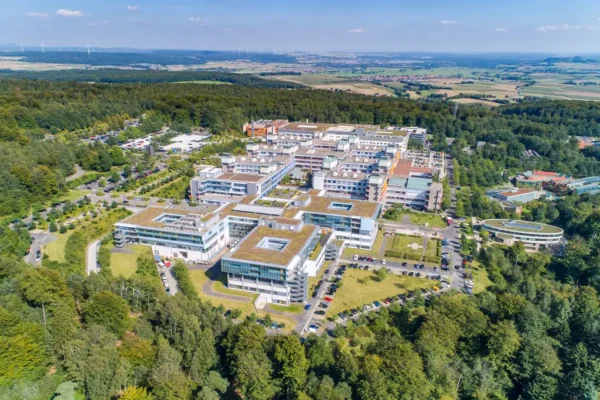Prof. Andreas Mahnken
University Hospital Marburg | IASIOS Accredited Centre
 Professor Dr. Andreas H. Mahnken is a distinguished figure in the field of interventional oncology, renowned for his groundbreaking work at UKGM Marburg. Under his leadership, the facility has achieved the IASIOS accreditation seal, affirming its commitment to excellence in patient care and innovation.
Professor Dr. Andreas H. Mahnken is a distinguished figure in the field of interventional oncology, renowned for his groundbreaking work at UKGM Marburg. Under his leadership, the facility has achieved the IASIOS accreditation seal, affirming its commitment to excellence in patient care and innovation.
With a remarkable background in medical studies and residencies, Professor Mahnken has emerged as a leader in diagnostic and interventional radiology. Since 2012, he has served as Chairman of the Department of Diagnostic and Interventional Radiology at Marburg University Hospital, where his expertise in interventional radiology, computed tomography, and cardiac imaging has significantly advanced patient care.
Professor Mahnken’s contributions extend beyond clinical practice; he is a researcher and educator as well. He is credited as a (co)-author of over 300 peer-reviewed articles and book chapters, demonstrating his commitment to advancing medical knowledge. Additionally, his leadership roles and memberships in esteemed societies such as CIRSE and ESR underscore his influential presence within the interventional oncology field.
Professor Mahnken’s journey in medicine began with his studies at the universities of Würzburg, Bonn, and Graz, culminating in his medical doctorate and subsequent specialization in radiological diagnostics. Throughout his career, he has continued to pursue academic excellence, earning additional qualifications in interventional radiology, cardiac imaging, and healthcare management. Moreover, his scientific endeavours have earned him recognition, including the prestigious Walter Friedrich Prize of the German Roentgen Society for his pioneering work in non-invasive cardiac imaging.
Professor Mahnken’s influence extends beyond academia; he is actively involved in standardization efforts for radiology and serves on the scientific advisory board of the patient organization Von-Hippel-Lindau eV. His commitment to advancing medical science and improving patient outcomes is truly commendable, solidifying his reputation as a leader in interventional oncology and diagnostic radiology.
Get to know Prof. Mahnken a little bit better!
What are your hobbies and interests outside of medicine?
Outside of his medical pursuits, Professor Mahnken enjoys a variety of hobbies, such as stargazing and electric bass, and he’s passionate about street photography.
Could you share an experience from your working/educational background that significantly impacted your journey?
“One of the most significant phases in my journey was my start in surgery with all the clinical work, physical exams, taking down patients’ history, indicating tests and performing surgical procedures.
During my initial year, I found that there was no one around to guide me (everyone was in the OR until late) I had to learn how to swim on my own, seeing as drowning was not an option for me.
While this path was undeniably a hard one (perhaps not the most advisable), it in some way profoundly shaped my approach towards work. “
Why did you choose a career in Interventional Oncology over other specialities?
“The benefit and welfare of the patient are the key; performing a (clinically, not only technically) successful procedure is truly rewarding. I must confess I find satisfaction in vascular work as well. The immediacy of relief experienced by patients, who often leave the ward pain-free, exemplifies the direct impact of our work on their well-being.”
What was your motivation behind seeking IASIOS accreditation?
“I viewed the IASIOS accreditation as a means to learn more and further enhance our operational framework and processes. By undergoing the accreditation process, we gained valuable insights into our processes, identified areas for improvement, and implemented best practices in quality management. I see it as an advanced tool for quality management.”
What benefits does the IASIOS accreditation provide to the patients and the IOs?
“Patients always receive the same quality of treatment – as the entire (interventional) radiology team is part of the IASIOS process. This collaborative effort leads to ongoing enhancements in the interfaces between different stages of treatment, ensuring a smoother and more refined patient experience. “
Could you name some of the improvements IASIOS has brought into your IO service line?
“Certification has had a profound impact on increasing awareness among IR techs regarding procedures, while also boosting motivation among other consultants to complete all forms and prescriptions diligently. Consequently, there has been a notable decrease in sloppiness. “
What advice do you have for the next generation of IOs?
“Embrace your clinical role and take full responsibility for your patients. Remember, you are not merely technical service providers; you are physicians entrusted with the well-being of those under your care. “

